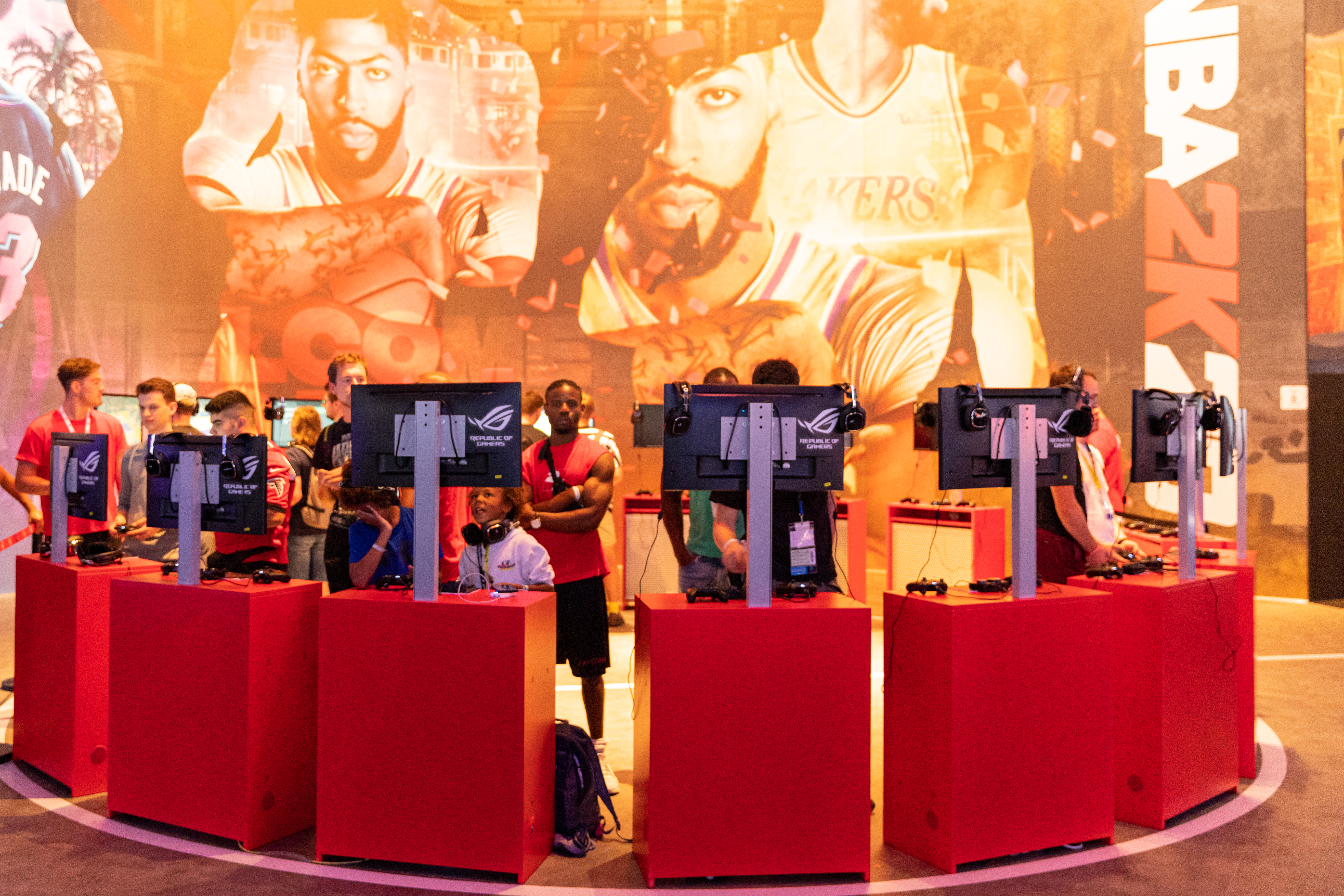Photo courtesy of dronepicr via Flickr (CC BY 2.0)
Within the gaming sphere, there is a diverge range of news that gets talked about: reviews, leaks, delays and, what this article is about, monetization. These topics are all important facets to what gaming news journalism typically consists of. However, one portion of the video game industry that is more softly spoken of is sports. This remained the case until Aug. 26 of this year when 2K released a trailer for the newest installment of their hit basketball game, “NBA 2K20.”
The trailer, named “NBA 2K20: MYTEAM,” shows a feature of the game that allows the player to build a team of basketball players of their own using real-world athletes and can be used to compete with other players online. If that was simply all there was to this trailer, then people would most likely not care as much as they do now. With the trailer sitting at 3.6 thousand likes to 22 thousand dislikes on YouTube, there must be something else to this trailer, something that would cause substantial uproar. As a matter of fact – there is. In the trailer, while it does show all the information I mentioned above, it also shows us how you how you get athletes. The trailers show shameless representations of popular gambling machines in the real world, such as slot machines and pachinko machines. This is also on top of the standard loot box system we have seen from other games.
This part is following a myriad of controversies that surround the concept of gambling in video games, such as the countless stories of families becoming bankrupt due to their child abusing video games that have loot boxes in them, limited-time rewards pressuring people to pay for loot-boxes as soon as possible in fear of never seeing that item again (this is also in “2K20”), and the infamous story of “Star Wars Battlefront 2.” Europe’s version of the “ESRB,” “PEGI,” even produced a response due to people complaining about the three and up rating given to the game by their staff, saying, “A video game gets the gambling content descriptor if it contains moving images that encourage and/or teach the use of games of chance that are played/carried out as a traditional means of gambling.” That is only one part of their rather lengthy statement. If you wish to read the entire statement, there are many outlets that have covered their response in greater detail such as Kotaku, Game Informer and CNN.
NBA 2K20 is a dangerous game in terms of itself, but also the gaming sphere as a whole.
My focus for this piece is more on the game, or rather, games themselves. While the story of “NBA 2K20” in a vacuum is rather shocking, when you see the whole picture it almost makes perfect sense why “2K20” is how it is. Back in 2016, when some people still thought that micro transactions were some of the worst forms of monetization, “Overwatch” came out and popularized loot-boxes for AAA titles that cost 60 dollars. While “Overwatch” didn’t start the concept of loot boxes, there is an obvious increase in the number of games that came with loot boxes after the release of “Overwatch,” especially within the AAA gaming space.
Four months after the release of “Overwatch,” “NBA 2K16” came out with loot boxes with little fanfare compared to the rest of the industry. In 2017, when “NBA 2K17” was released, the government of Belgium issued a ban on loot boxes that led to many game companies filing complaints to the EU and encouraging their player bases to call the Belgian government to encourage them to change. 2K even released a statement saying that they would continue to contact the Belgian government to encourage them to change their minds and that the players should do the same.
In 2018, 2K released the next game in their series, “NBA 2K18.” This was mired in controversy that was started by the game heavily encouraging a pay-to-win economy. The CEO of Take-Two, which owns 2K games, Strauss Zelnick, even made a response to the complaints, saying that they would “learn from this experience and do better next time.” They did practically nothing about the problems people had with the game. When that happened, people were not so concerned with it. The reason being this was the year “Star Wars Battlefront 2” came out to a tsunami of backlash, the likes of which had never been seen before, leading to historical legislative precedent about gambling in loot boxes.
And in “NBA 2K19,” they had unskippable ads in a 60 dollar, sometimes 90 dollar game.
Regardless of its history, “NBA 2K20” is a dangerous game in terms of itself, but also the gaming sphere as a whole. This year, many games have tried as hard as they can to stay away from the nuances of loot boxes and gambling in their games. This is due to the fact that many are afraid of setting more of a precedent and offering evidence that gaming needs more regulation to governments across the globe. Regardless of the intent of this game’s monetization, it may be used in future discussion in terms of regulation.
Edward Park is a second-year student majoring in English education. EP909756@wcupa.edu


You misspelled “Diverse”
There should be more articles to shine the light on how dangerous games like 2k20 is to people’s livelihood. I’ve witnessed people almost go bankrupt, spend mortgage, grocery, and bill money on a chance at winning players on the boxes. This is a very scary thing to witness.